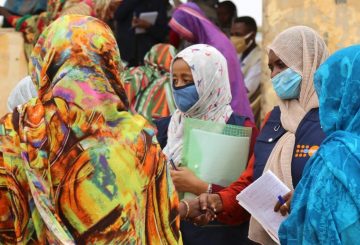A recent report from the World Health Organisation (WHO) has revealed a concerning increase in obesity cases worldwide since 1990, with over one billion individuals affected by this non-communicable disease.
Published by the Lancet Medical Journal, the report emphasizes the uneven impact of obesity on poorer nations, while highlighting a troubling trend of rising obesity cases among children and adolescents, surpassing the growth seen among adults.
WHO defines overweight and obesity as abnormal or excessive fat accumulation posing significant health risks, with a body mass index (BMI) exceeding 25 considered overweight and over 30 classified as obese. The study, released in commemoration of World Obesity Day observed annually on March 4, estimated that the global population of obese adults, adolescents, and children surged from approximately 226 million in 1990 to 1.038 billion in 2022.
The research involved a comprehensive analysis of weight and height measurements collected from over 220 million individuals across more than 190 countries to arrive at these estimates. The findings revealed a concerning disparity, with an estimated 504 million adult women and 374 million men classified as obese in 2022. Moreover, the study highlighted a worrisome trend, indicating that the obesity rate had nearly tripled among men (14 per cent) since 1990, while more than doubling among women (18.5 per cent).
According to the study, the number of children and adolescents living with obesity increased from approximately 31 million in 1990 to approximately 159 million in 2022. The Caribbean, Middle East, North Africa, Polynesia, and Micronesia were identified as regions that suffered more from the rise, with higher obesity rates than many high-income industrialized countries in Europe.
Reacting to the findings, WHO director-general Tedros Adhanom Ghebreyesus stressed the importance of managing obesity from early life to adulthood through diet, physical activity, and adequate care. He highlighted the need for cooperation from the private sector, which must be accountable for the health impacts of their products.
Francesco Branca, the Director of Nutrition for Health at the WHO, noted that the rise above one billion people with obesity has come “much earlier than we have anticipated” and emphasized the importance of long-term solutions beyond new drugs.





